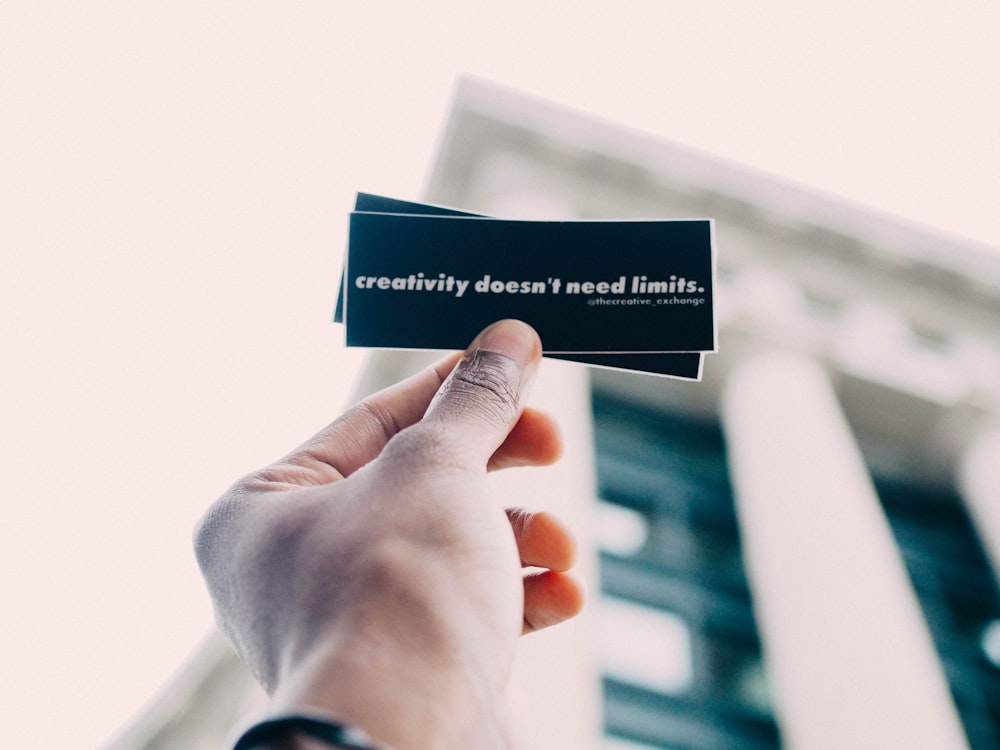Creativity is also useful in your career – it’s actually a trait that HR can look for in a potential candidate, depending on the role.
In truth, we all have the potential to be creative. The secret is how to let it out, let it grow and let it reach its fullest potential.
Finding the Creative Within Oneself
Sir Ken Robinson, the bestselling author of Out of Our Minds: Learning to Be Creative says that everyone has a lot of potential when it comes to creativity. Ken states that we have to have a better mindset and approach to creativity and creative thinking in both business and education.
“You can be creative in maths, science, music, dance, cuisine, teaching, running a family or engineering” Robinson said in one of his interviews. “Because creativity is a process of having original ideas that have value… It’s a process, not a single event, and genuine creative processes involve critical thinking as well as imaginative insights and fresh ideas”.
Creativity is a process. Like an important idea for instance, and one that comes up again and again. Creativity is not just about having that “lightbulb” moment (which we are all capable of), it is about setting ourselves up to have that moment, then knowing what to do when it happens.
Learning creativity, therefore, does not mean starting from scratch; it means unearthing and enhancing the creative intelligence that already exists within us.
How are People Learning Creativity?
Gerard Puccio, Chairman of the International Centre for Studies in Creativity, states that there are many reasons why he thinks it's possible to teach creativity, but particularly highlighted three:
“First, my own personal experience in going through creativity training. As a young man I was the poster-child for someone who was uncreative, had much more of an athletic bent. Through undergraduate coursework in creativity, I was able to dramatically improve my creative thinking prowess. So personal experience.
Second, as a practitioner, both as a trainer and educator, I have worked with thousands of people and watched their transformation as a result of creativity training.
Finally, as a scholar I am familiar with the research that has experimentally tested the ‘trainability’ of creativity – and the evidence is conclusive. Creativity training has been shown to significantly improve creative attitude, creative performance, and creative problem-solving skills".
Puccio went on to explain the association’s approach to teaching creativity:
“The research has shown that those programmes that focus on providing people with cognitive strategies (tools that enhance thinking) are the most effective.
With that in mind, the International Centre for Studies in Creativity uses a model called Creative Problem Solving. The core skill embedded in the model is the separation of idea generation from idea evaluation.
Both are important, but generation must come before evaluation. Additionally, this model provides a comprehensive set of cognitive tools that run the full range of the creative process, i.e. tools for problem clarification, tools for idea generation, tools that help to transform good ideas into great solutions, tools to help sell your great solutions to others, and tools that help with create a viable action plan”.
Of course, universities aren’t the only places helping individuals expand their creative ability. If you look at some of the most successful startups and businesses, they’re embracing creativity too.
For example, at 3M and Google, employees are encouraged to take free time to work on their own projects.
LinkedIn has an area where employees can play and relax (studies have found that people in a relaxed mood are more likely to arrive at creative solutions; one study by Australian researchers even found that lying on your back can help you solve puzzles).
What You Can Do Today to Enhance Your Creativity
Ready to embrace the creative within? Start with a few easy tricks:
-
Relax: Take a walk, play a game. If you’re in a creative block, let your mind be free of its normal obligations.
-
Stop self-editing: Don’t be afraid to have a creative idea; don’t think that every idea sounds silly. Give yourself the freedom to think freely. Critical thinking can come later.
-
Don’t give up: While relaxation and free thinking can help you start to be more creative, creativity also requires daily practice, discipline, and time. Some of the most creative people come up with their best ideas only after hours, days, weeks or years of creative thought and critical thinking about a problem or question.
If the “lightbulb” moment doesn’t strike you right away, take solace in the fact that it rarely does. If you’re frustrated, take a moment for yourself and get back into a creative flow when you’re ready.



